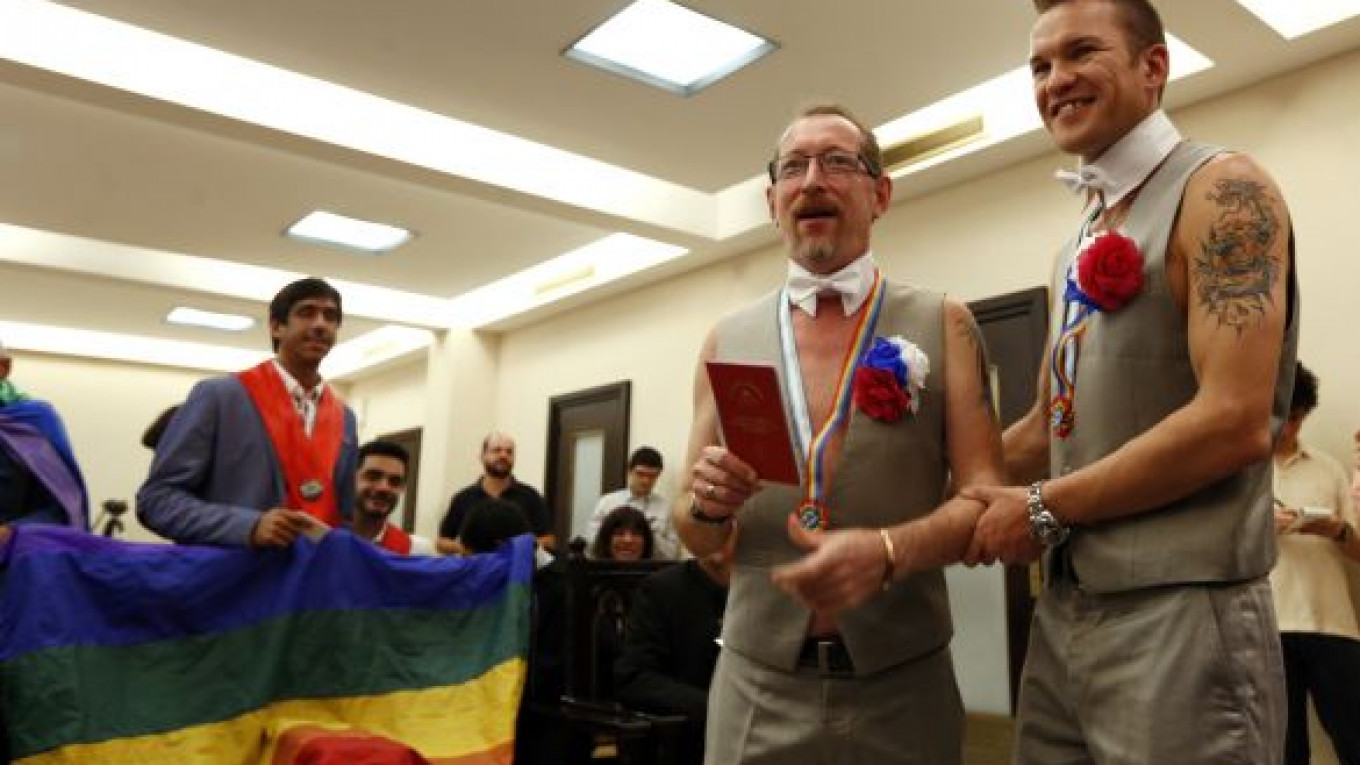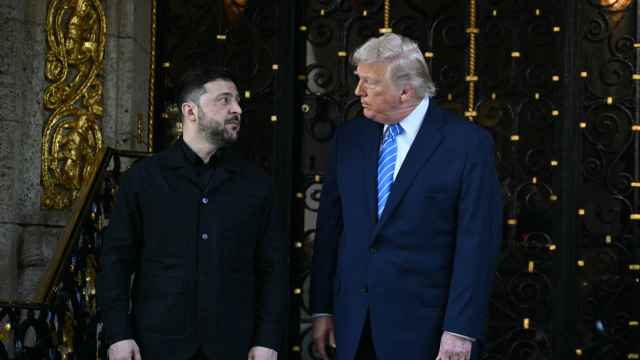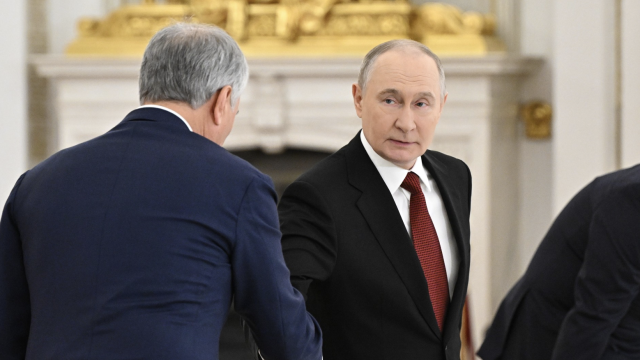BUENOS AIRES — Two Russian homosexuals married Tuesday in Argentina and said they would seek asylum from the violence they fear back home in the Olympic city of Sochi, joining a growing number of other gays seeking marriage and refuge abroad.
Alexander Eremeyev and Dmitry Zaytsev were wed before a judge at a civil registry in Buenos Aires, where they were helped by rights activists who want Argentina to become a refuge for Russians and other nationalities fearing persecution at home because of their sexual orientation.
They plan to make their case before Argentina's National Commission for Refugees within the next few days, saying their new status as a married couple makes them vulnerable to police persecution and mob violence in Sochi, which just hosted the Winter Games.
Citing gay marriage in asylum cases is a growing trend in the U.S. and Europe as well, said Aaron Morris, legal director of Immigration Equality, a New York-based group that helps immigrants file such claims. The group's Russian case load grew from about 11 a year to 28 in 2013, and 33 gay Russians already asked for its help in January alone, he said.
"Many of our clients come out of the closet only after they arrive here. To be eligible for asylum, an LGBT person must prove a reasonable possibility of persecution in the future. There are many factors that might carry that burden, but, of course, having a same-sex spouse would be very dangerous in many parts of the world, including Russia," Morris said.
Eremeyev, 45, and Zaytsev, 37, were bare-chested below their vests and bow ties, but wore ribbons split between the color of the rainbow and the Argentine flag and pinned on flowers in the blue, white and red of Russia's flag. They held hands throughout the ceremony, and then enjoyed a long kiss after the judge declared them spouse and spouse.
"We care for each other, we know each other, we have many things in common and we want this to be a legal union," Eremeyev said nervously in Russian. The two said they suffered hostility until leaving Sochi two months ago.
Judge Jose Luis Badur told them such "sentiment does not depend on any law; it depends on nature."
Other gay Russians have married and obtained political asylum in Argentina, but this is the first couple to do so publicly, said Alex Freyre, whose marriage to Jose Maria Di Bello in December 2009 was Argentina's first gay wedding. More than 7,000 other same-sex marriages have followed.
Russia does not recognize gay marriages or civil unions, and openly gay and lesbian Russians say they have been targeted by vigilantes, even more so since President Vladimir Putin approved a law last year banning what it calls gay "propaganda" from reaching minors.
A European Union court ruled recently that laws criminalizing homosexuality could provide grounds for political asylum. And U.S. President Barack Obama's administration clarified how gays, lesbians and transgender people seeking asylum could cite fears of persecution due to their sexuality. That change was reinforced by the federal appellate court in San Francisco in November.
The U.S. government has not published asylum numbers since October 2012, and does not release reasons for granting asylum, even in the aggregate. But Morris said having a same-sex spouse can help justify a well-founded fear of persecution.
"When a country institutionalizes homophobia in laws that make it a crime to be gay, it is reasonable to expect an increase in asylum seekers from that country. This has been our experience in recent months for gay Russians and in recent days for gay Ugandans," Morris said in an e-mailed response to Associated Press questions.
On Monday, Uganda made gay sex between consenting adults punishable by prison terms of 14 years to life, and on Tuesday a target list of prominent purportedly gay men, some of them still closeted, was published. At least one gay Ugandan man has already sought protection in South Africa.
Some gays already have fled Nigeria because of intolerance, and more are considering leaving now that legislation further criminalizing homosexuality became law in January, human rights activist Olumide Makanjuola said.
It is expected to take 20 days for Argentina's refugee commission to review the Russian couple's case.
"If Argentina accepts us and gives us the possibility of living legally, with documents, we would like to dedicate ourselves to our businesses," said Eremeyev, who like his spouse has worked in the tourism industry.
They are even thinking of adopting a child, he said. "We want to be good people, and form our family."
A Message from The Moscow Times:
Dear readers,
We are facing unprecedented challenges. Russia's Prosecutor General's Office has designated The Moscow Times as an "undesirable" organization, criminalizing our work and putting our staff at risk of prosecution. This follows our earlier unjust labeling as a "foreign agent."
These actions are direct attempts to silence independent journalism in Russia. The authorities claim our work "discredits the decisions of the Russian leadership." We see things differently: we strive to provide accurate, unbiased reporting on Russia.
We, the journalists of The Moscow Times, refuse to be silenced. But to continue our work, we need your help.
Your support, no matter how small, makes a world of difference. If you can, please support us monthly starting from just $2. It's quick to set up, and every contribution makes a significant impact.
By supporting The Moscow Times, you're defending open, independent journalism in the face of repression. Thank you for standing with us.
Remind me later.






